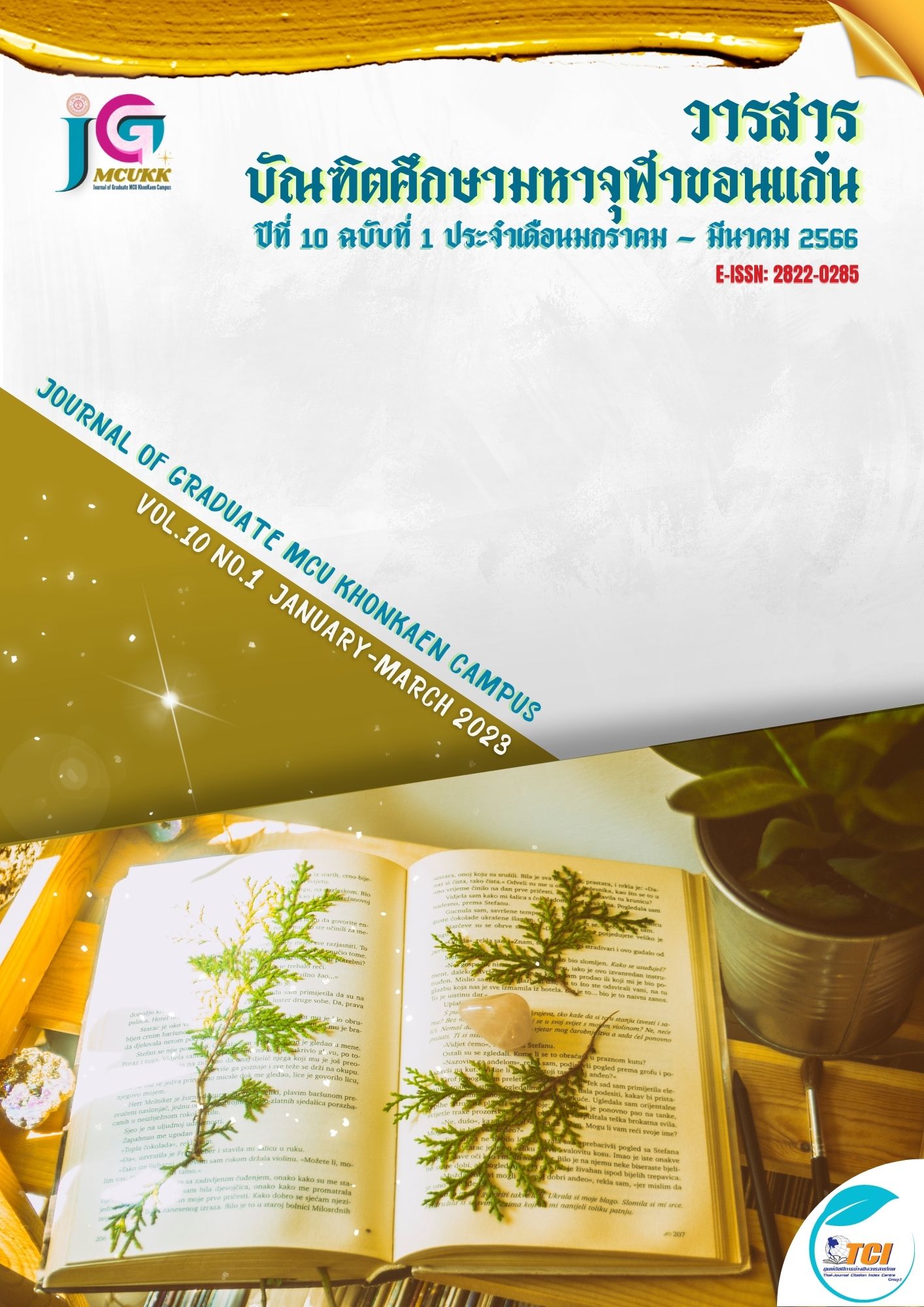The Development of Code of Ethics of Teaching Profession for Art Student Teachers Through the Information Technology System in Chiang Mai Province
Main Article Content
Abstract
This research aimed to examine fundamental information in teaching and learning management and to investigate the effects of developing code of ethics of teaching profession for art student teachers through the information technology system according to the action research process. The sample group in this research consisted of 36 fifth-year students studying in the art education program. They were selected by using purposive sampling method. The research instruments were a basic information record form, a knowledge test, a code of ethics of teaching profession assessment form, a work synthesis form, and an operation tracking record form. The qualitative data were analyzed based on content analysis, whereas the quantitative data were statistically analyzed for percentage, mean, and standard deviation.
The research results were summarized as follows:
1. According to the fundamental information in teaching and learning
management, it was found that 1) Affiliation: the majority of students practiced their teaching professional experience in schools which were under the Basic Education
Commission, 66.6%. 2) General information: most of the students were female, 52.77%, whereas 47.22% of students were male. 3) The condition of teaching and learning: there was the teaching in Mattayom 1 (grade 7) to Mattayom 3 (grade 9) the most, 46.7%.
The course of visual arts was taught the most, 96.6%. Practical art instruction was
provided the most, 66.7%. Contents were organized between theory: practice in a volume of 50:50 the most, 46.7%. Power point media was used for teaching the most, 73.3%. Lastly, assessments were made the most by asking students to take pictures and send them back online, 83.3%.
2. According to the effects of developing code of ethics of teaching profession for art student teachers, overall it was found at the highest level. ( = 4.93) The students had the most ethical behavior towards professional colleagues. (
= 5.00) However, they had the least professional ethics. (
= 4.88)
Article Details

This work is licensed under a Creative Commons Attribution-NonCommercial-NoDerivatives 4.0 International License.
References
ชนิตา รักษ์พลเมือง และคณะ. (2560). การศึกษาสภาพและปัญหาการผลิต การใช้ และการพัฒนาครูการศึกษาขั้นพื้นฐานที่สอดคล้องกับความต้องการในอนาคต. วารสารครุศาสตร์, 45(3), 17-33.
พรพิมล แก้วฟุ้งรังสี. (2563). การศึกษาปัจจัยการยอมรับระบบอีเลิร์นนิงของนักศึกษา มหาวิทยาลัยราชภัฏเชียงใหม่. วารสารการพัฒนางานประจำสู่งานวิจัย, 7(1), 48-54.
เพ็ญพนอ พ่วงแพ, อนงค์พร สมานชาติ และกัลยา เทียนวงศ์. (2562). การศึกษาคุณลักษณะของนักศึกษาฝึกประสบการณ์วิชาชีพครู สาขาสังคมศึกษา คณะศึกษาศาสตร์ มหาวิทยาลัยศิลปากร. วารสารมหาวิทยาลัยศิลปากร, 39(5), 117-127.
มนตรี แย้มกสิกร, อมลวรรณ วีระธรรมโม และวิลาวัลย์ โพธิ์ทอง. (2564). หลักการและระบบปฏิบัติการเพื่อเสริมสร้างจรรยาบรรณวิชาชีพครูผ่านระบบเทคโนโลยีสารสนเทศ. วารสารมหาวิทยาลัยศิลปากร, 41(2), 1-12.
วิจารณ์ พานิช. (2554). วิถีสร้างการเรียนรู้เพื่อศิษย์. กรุงเทพฯ: มูลนิธีสดศรี-สฤษดิ์วงศ์.
วิจิตรา สามาอาพัฒ. (2564). การสร้างชุมชนการเรียนรู้ทางวิชาชีพครูภาษาไทย ระดับมัธยมศึกษาปีที่ 3 เพื่อพัฒนาความสามารถด้านการอ่านอย่างมีวิจารณญาณจากสื่อออนไลน์โดยใช้เทคนิคการสอนแบบ KWLH-Plus. วารสาร มจร พุทธปัญญาปริทรรศน์, 6(2), 42-51.
ศศิธร อินตุ่น และอรกมล สุวรรณประเทศ. (2565). การศึกษาความสามารถในการออกแบบการเรียนรู้ของนักศึกษาครูระดับบัณฑิตศึกษา มหาวิทยาลัยราชภัฏเชียงใหม่. วารสารศึกษาศาสตร์มหาวิทยาลัยมหาสารคาม, 16(3), 212-227.
ศักดิ์ชาย เพชรช่วย, พันธ์ศักดิ์ พลสารัมย์ และ สมหวัง พิธิยานุวัฒน์. (2560). แนวปฏิบัติที่ดีของโครงการ ผลิตครูในสถาบันผลิตครูในสถาบันอุดมศึกษาไทย. วารสารวิทยาลัยดุสิตธานี, 11(1), 307-320.
สุมน อมรวิวัฒน์. (2554). ครุศึกษากับความเปลี่ยนแปลงที่ท้าทาย. กรุงเทพฯ: คณะครุศาสตร์ จุฬาลงกรณ์มหาวิทยาลัย.
สุมาลี ไสยรินทร์, จิณณวัตร ปะโคทัง, และณัฐกิตติ์ สวัสดิ์ไธสง. (2564). รูปแบบการสร้างชุมชนแห่งการเรียนรู้ทางวิชาชีพครูของโรงเรียนในสังกัดสำนักงานเขตพื้นที่การศึกษามัธยมศึกษาเขต 29. วารสารสันติศึกษาปริทรรศน์ มจร, 9(6), 2531-2540.
สำนักงานเลขาธิการคุรุสภา. (2564). คู่มือการดำเนินงานกิจกรรมส่งเสริมกระบวนการชุมชนแห่งการเรียนรู้ทางวิชาชีพ เพื่อพัฒนาจรรยาบรรณวิชาชีพผ่านระบบเทคโนโลยีสารสนเทศ ประจำปี 2564. กรุงเทพฯ: สำนักงานเลขาธิการคุรุสภา.
สำนักงานเลขาธิการสภาการศึกษา. (2558). สถานภาพการผลิตและการพัฒนาครูในประเทศไทย. กรุงเทพฯ: พริกหวานกราฟฟิค จำกัด.

